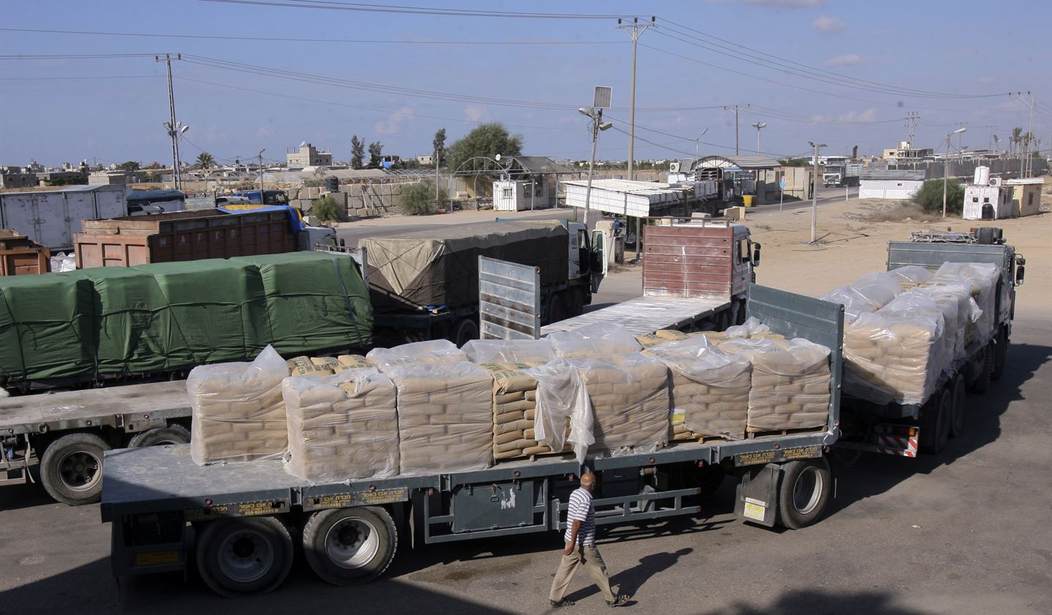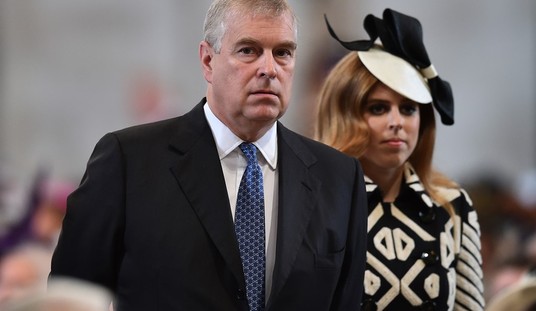I'm sure this will come as a great surprise to many of you, considering how well everything else has been going during Joe Biden's presidency, but his staff is reportedly growing more "doubtful" that their proposal for a ceasefire in Gaza will work out or that Israel and Hamas will come to any sort of comprehensive deal leading to an end of the fighting. The proposal that the White House previously submitted was to have unfolded in three steps, with the first one involving the release of most of the hostages and a six-week ceasefire. If you've been following the news out of Gaza recently, you are likely aware that we are still firmly stuck at step zero. The White House continues to insist that Israel and Hamas have "generally agreed" to at least the first phase of the proposal, but that's not what it sounds like when you listen to statements coming from Hamas' leader and Bibi Netanyahu. So where do we go from here if the White House is supposed to be exhibiting leadership in this tricky situation? Nobody seems to know. (Politico)
Biden administration officials increasingly doubt that Israel and Hamas will reach a comprehensive cease-fire deal under the current framework, according to four U.S. officials familiar with the negotiations.
The deal, if agreed, is supposed to unfold in three phases. Phase 1 pauses fighting for six weeks, allowing for the withdrawal of Israeli forces from the populated areas of Gaza, the release of hostages and the freeing of Palestinian prisoners. In the second phase, Israel and Hamas are supposed to try to negotiate an end to all hostilities and the release of the remaining hostages. Reconstruction of Gaza would take place in Phase 3.
Israel and Hamas generally agree to the conditions stipulated under Phase 1 but they are at odds over how to officially end the war, according to two of the officials, who, like the others, were granted anonymity to speak freely about sensitive negotiations. Despite initial optimism about the deal, officials now believe those disagreements could upend the entire pact.
One anonymous Biden official tried to paint a slightly better face on the situation, saying that phase two of Biden's plan is the "sticking point." Phase one should have been fine, but neither side will move forward until they find phase two satisfactory and there is no suggestion that such a thing will happen.
The problem here all along is that Israel does not have an honest partner in these negotiations. Hamas' spokespeople keep making noises about progress taking place and expressing "hopes" that a deal can be reached, but all they are doing is stalling for time. Israel has made it crystal clear from the beginning that there is no path to permanent peace unless Hamas either fully surrenders or is completely dismantled. For their part, Hamas is insisting that Israel pull out of Gaza permanently before any further negotiations are possible. They've drawn a line in the sand that they know Israel will not agree to, making the Biden proposal a non-starter.
A negotiated peace proposal would have been fine with me (not that it's my business) as long as it worked out in terms of Israel's needs. They are the aggrieved party in all of this who suffered a horrendous terror attack on their country. But if Hamas cannot be reasoned with, as the old saying goes, I suppose we're just going to have to do this the hard way. Once Rafah is cleared and all of the terror tunnels have been located and taken care of, Hamas will run out of fighters soon enough. In the meantime, more Gazan "civilians" will end up dying and the United Nations will continue to complain about it.
There's some glaring irony in this uneven balance of power and influence that we're seeing unfold this year. There are college students and paid socialist agitators who claim to be very worried about the Palestinians in the Gaza Strip. The United Nations wrings its collective hands and proclaims the same worries. Israel takes extraordinary precautions to minimize non-combat fatalities. But do you know who doesn't give a flying fig about the supposed "civilians" in Gaza? Hamas doesn't. They don't care if their own residents die. In fact, they look forward to it because they believe it helps build sympathy for their cause on the international stage, and in some cases, they are sadly correct about that. If they didn't want these people dying, they shouldn't have attacked their much more powerful neighbor on October 7. It's really as simple as that.








Join the conversation as a VIP Member